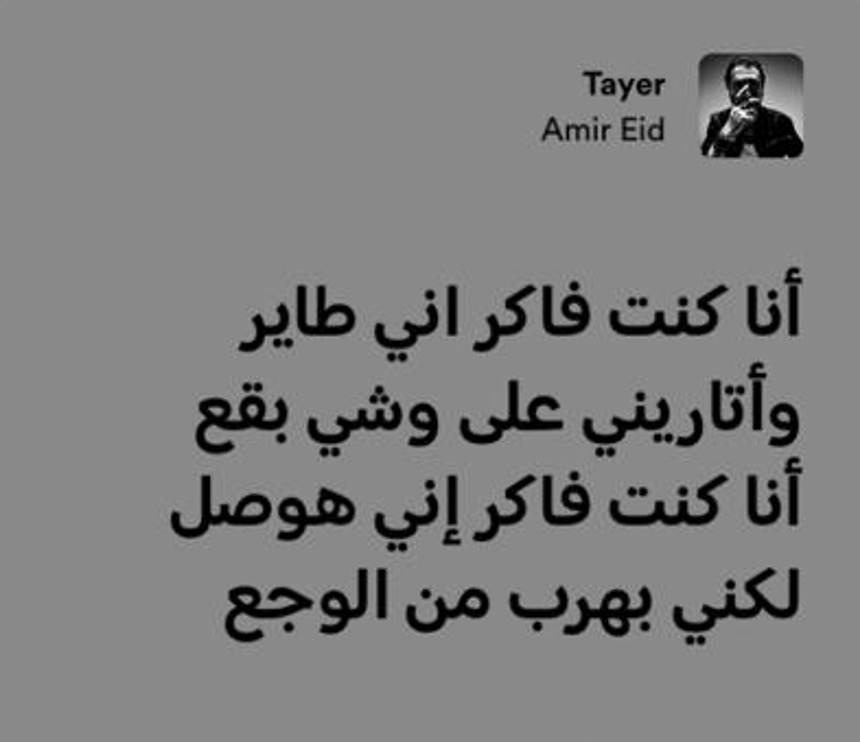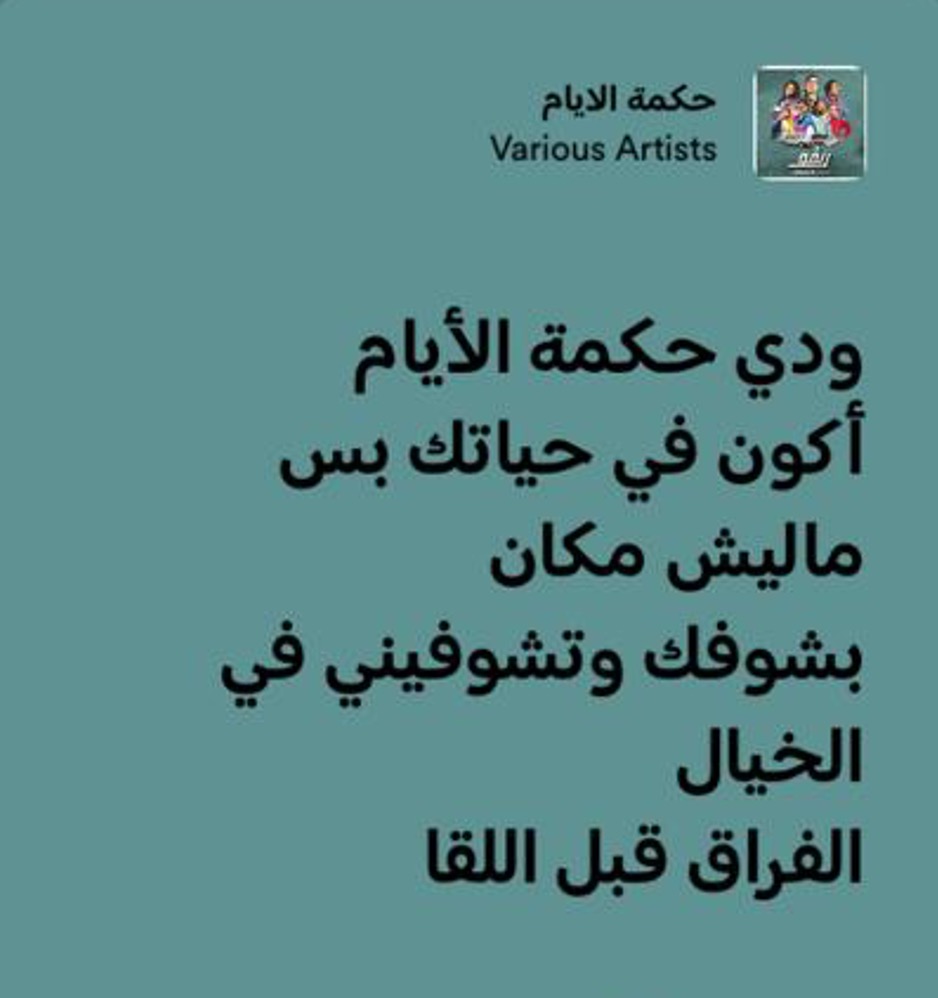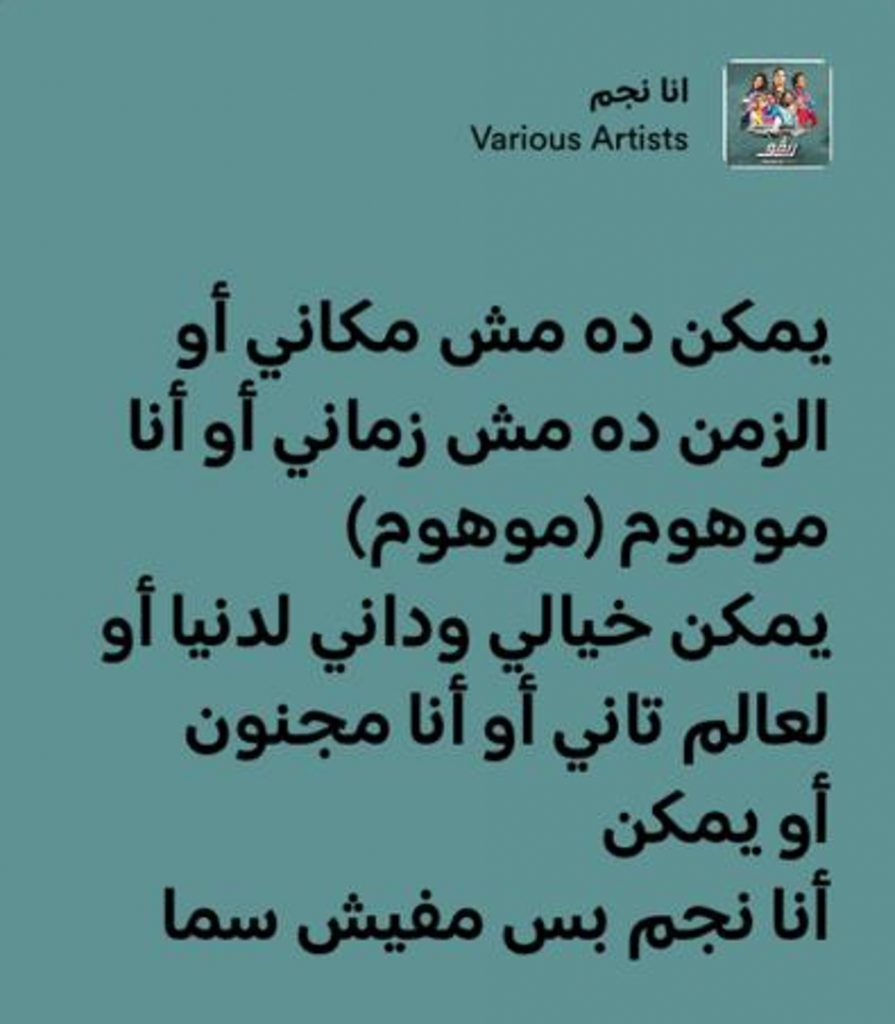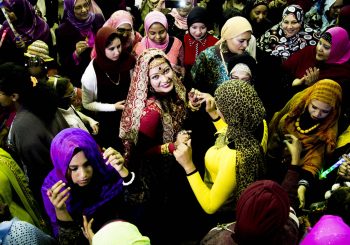Long before the echoes of Cairokee’s fame rippled across Egypt and beyond, they operated under the name ‘The Black Star,’ where their primary focus was covering their favorite English and Arabic songs.
Yet, as stars often do, they underwent a metamorphosis – from the remnants of ‘The Black Star’ emerged ‘Cairokee,’ a name symbolizing the band’s commitment to sing along with the city by fusing the words ‘Cairo’ and ‘karaoke.’
To be in synchronicity with Cairo is to move in harmony with its language, to sense the heartbeat of its streets, and to channel the emotions of its inhabitants. Amir Eid, the lyrical mind of the band, possesses a gift that has earned him enduring admiration over time – an ability to distill tangled emotions into verses of exceptional simplicity.
In his latest appearance in the television series, Rivo, directed by Yahya Ismail, Eid once again shines with his lyrical skills, contributing songs that infuse the plot with emotions and navigate the realms of nostalgia, grief and mental health, all while using simple lyrics that touch the innermost chords of the human experience.
Here is a glimpse of some, though definitely not all, of these lyrics:
Tayer (Flying)
I used to think I was flying high,
Turns out I’m plummeting, crashing down,
I once thought I’d reach my final goal,
Yet, I’m merely escaping from the pain.
Employing the unpretentious metaphor of flying, Tayer mirrors the human experience of turning to external sources for internal solace and the initial illusion of finding salvation, only to reach a sobering realization that these crutches often lead to a deeper fall.
‘Ala Bab El Cima (By The Cinema’s Door)
Standing by the cinema’s door,
I hold an old ticket,
And there’s a story I bring,
I wish to rewrite it.
With a touch of poetic flair and a dash of imagination, ‘Ala Bab El Cima uses words that, once the metaphor is unraveled, become incredibly accessible and relatable. Employing the cinema as a symbol for life and personal journeys, the singer, stationed at the cinema entrance clutching an old ticket, embodies the universal human desire to revisit the past when confronted with the wisdom of hindsight.
Wahashteeny (I missed you)
We love each other, but love isn’t enough
Like scenes before the movie’s opening
Like a song that doesn’t tell a story
Like the world when you’re not with me.
Wahashteeny may come across as a basic song about missing an ex after a breakup. Yet the beauty in its lines lies in the frank exploration of their love’s incompleteness, all the while paradoxically asserting that their love is no more incomplete than their life would be without the person they’re addressing. There’s hardly a simpler way to convey the paradoxical dilemma of recognizing a relationship’s imperfections while remaining unwaveringly attached to it.
Hekmet El Ayam (The Wisdom of the Days)
This is the wisdom of the days,
To exist in your life but,
There’s no space for me,
I see you, and you see me,
In an imagination,
Parting before the meeting.
Hekmet El Ayam is a bittersweet expression of longing and separation. It stands as one of the most emotionally charged songs in the series, portraying the acceptance phase of the five stages of grief.
Ana Negm (I’m A Star)
Perhaps this isn’t my place,
Or this time isn’t my time,
Or I am deluded,
Perhaps my imagination fooled me,
To this world or to another world,
Or I’m crazy,
Or perhaps,
I’m a star but there’s no sky.
Out of all the songs in the Rivo series, Ana Negm has risen to unparalleled fame, even since the show’s first season. It has become a fan favorite, with audiences clamoring for it at Cairokee concerts right from the start.
The song’s widespread popularity is due to its relatable lyrics that depict the uncertainties of life and the feeling of not quite belonging—an emotion that strikes a chord, particularly with young adults.
Each instance of “yemken” (perhaps) within the song signifies a moment of introspection and doubt, akin to the singer questioning their own reality, choices, and the world around them – a human experience that somehow becomes more bearable when one realizes its universality among others.
Subscribe to the Egyptian Streets’ weekly newsletter! Catch up on the latest news, arts & culture headlines, exclusive features and more stories that matter, delivered straight to your inbox by clicking here.











Comment (1)
[…] post Rivo’s Lyricism: Five Passages from the Popular Series that Speak Volumes in Simplicity first appeared on Egyptian […]